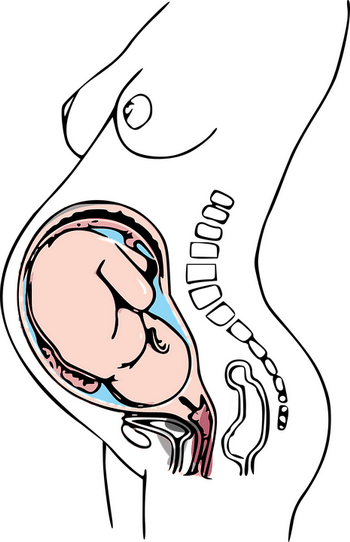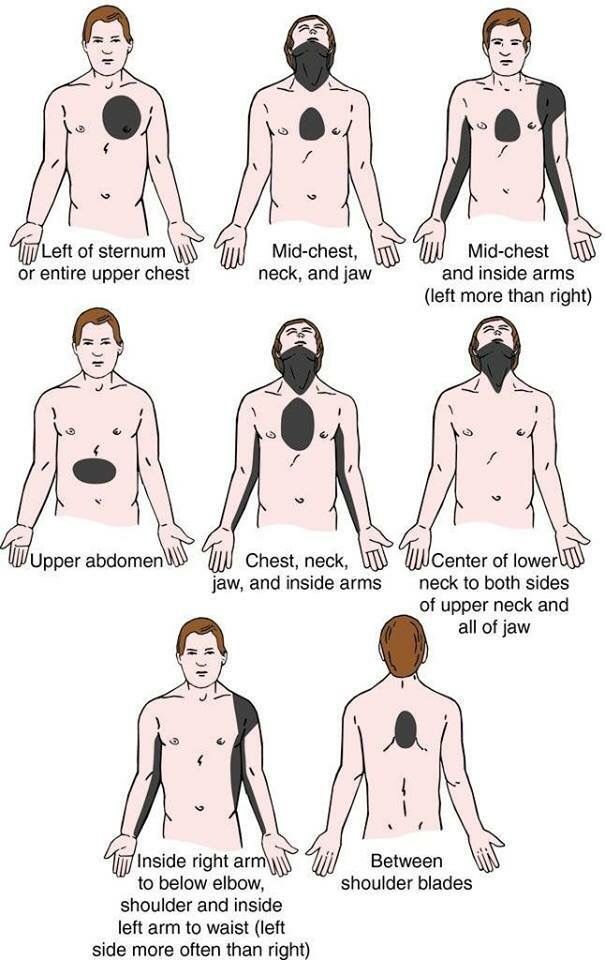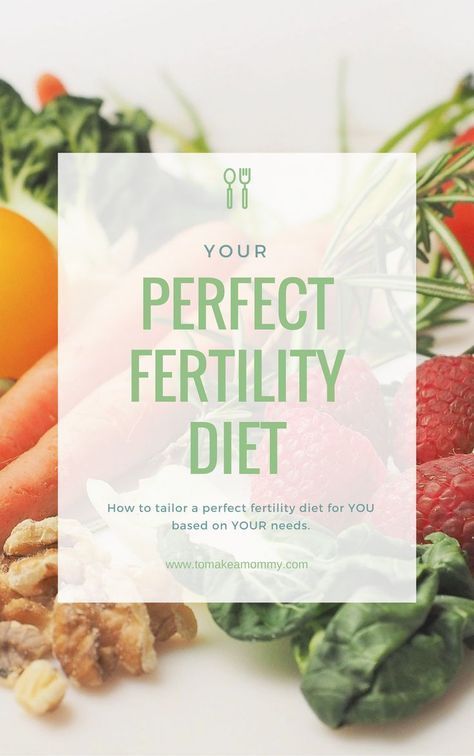Life after delivery
Newborn Feeding, Mental Health, and More
After months of anticipation, meeting your baby for the first time will surely be one of the most memorable experiences of your life.
In addition to the big adjustment of becoming a parent, you’ll also encounter a new set of physical and emotional symptoms that begin once baby is born. These symptoms will likely be unlike any you’ve experienced before.
The most common symptom you may experience after birth is a discharge called lochia. This bloody discharge looks similar to a menstrual period and can last up to 8 weeks after birth.
People also typically experience strong sensations of uterine cramping as the uterus shrinks back to the size it was before pregnancy.
Other symptoms will vary from person to person, depending on your method of delivery and whether you decide to breastfeed. These symptoms include:
- bleeding
- discharge
- breast swelling
- uterine pain
Many feel unsure about what to expect and wonder what’s considered “normal” after delivery. Most people make a full recovery after childbirth.
Nevertheless, there are some complications and less common symptoms you should be aware of.
The length of your stay at the hospital will depend on your birth experience. Some birthing centers allow people who experience unmedicated childbirth to leave on the same day that they deliver.
Most hospitals, however, require a stay of at least 1 night. People who have cesarean births should expect to stay in the hospital for up to 3 nights, unless other complications are present.
While you’re at the hospital, you’ll have access to pediatricians, maternity care nurses, and lactation consultants. They’ll all have plenty of information and advice for you about the physical and emotional journey ahead.
Try to use this opportunity to ask questions about postpartum body changes and breastfeeding.
Hospitals with labor and delivery units have nurseries where your baby will be supervised and kept clean. Though it’s tempting to keep baby by your side 24/7, use this resource to try to get some rest, if you can.
Many hospitals will require that you have a bowel movement before you’re able to leave the facility. You’ll be offered a stool softener after delivery to ease the pain of the first bowel movement after birth.
If you show any signs of infection, such as fever, you may have to stay at the facility until those symptoms resolve. Your midwife or delivery doctor may perform a brief exam before you leave, just to make sure that you’ve started the healing process.
If you opt for a home birth, your midwife will be the primary overseer of your care after delivery. Your midwife will examine you and baby to make sure everyone is healthy before periodically checking in during the weeks after your delivery.
The first medical test that your baby will have at the hospital is called the APGAR test. It takes place as soon as they’re born.
APGAR tests taken 5 to 10 minutes after birth are the most accurate. However, most physicians also regularly record the 1-minute APGAR score. The APGAR score is based on five factors:
The APGAR score is based on five factors:
- Appearance
- Pulse
- Grimace
- Activity
- Respiration
The maximum score is 10, and any score between 7 and 10 is considered normal. A low APGAR score could indicate that baby may have been stressed during the end of the birth process.
While in the hospital, your baby’s hearing and eyesight will also be tested. Your baby will also be tested for their blood type. Some states have laws or recommendations that mandate babies receive certain vaccines or medications before they leave the hospital.
The rest of baby’s experience in the hospital will depend on their birth weight and how they’re doing after birth.
Some babies who aren’t considered full term (born before 37 weeks) or are born with a low birth weight are kept for observation in a neonatal intensive care unit (NICU) to ensure that they can adjust to life after the womb.
Newborn jaundice, which involves a yellowing of the skin, is fairly common. Around 60 percent of newborn babies experience jaundice, according to March of Dimes. Babies with jaundice will need to be treated in an incubator.
Before you leave the hospital, you’ll need to make an appointment with a pediatrician outside the hospital to weigh and examine baby. This 1-week appointment is standard practice.
The American Academy of Pediatrics (AAP) recommends that children be breastfed exclusively through their first 6 months of life.
The World Health Organization (WHO) recommends breastfeeding until 2 years old or even longer because of the huge benefits.
Starting within 1 hour of birth offers big benefits as well.
Breastfeeding is an intensely physical experience for both of you. During your pregnancy, you may notice your areola darkening and your nipples growing in size. Newborns can’t see well, so this will help them find your breast and eat for the first time.
The first milk that enters your breast is called colostrum. This milk is thin and has a cloudy color. The liquid contains valuable antibodies that will help establish your baby’s immune system.
Within the first 4 days of baby’s life, the rest of your milk will come in, causing your breasts to swell. Sometimes milk ducts get clogged, causing a painful condition called mastitis.
Continuing to feed baby and massaging your breast with a hot compress can unclog the duct and reduce the risk of infection.
Newborns tend to “cluster feed.” This means that at times it may feel that they’re eating almost constantly. Cluster feeding is normal and primarily happens in the first few weeks.
Not everyone is able to breastfeed. Some have breast or nipple abnormalities that prevent adequate lactation or proper latching on. Sometimes certain medical conditions prohibit breastfeeding.
Feeding baby from a bottle will require keeping a close eye on how much they eat and how often. If you’re unable to breastfeed, or if you choose to formula feed your baby for another reason, discuss this decision with your pediatrician.
If you’re unable to breastfeed, or if you choose to formula feed your baby for another reason, discuss this decision with your pediatrician.
They can help you learn how much and what kind of formula is best to use for baby.
A breastfeeding parent’s eating plan is similar to any well-balanced plan. It will include:
- fiber-rich carbs
- healthy fats
- fruit
- protein
- vegetables
If you’re breastfeeding, you may find yourself feeling hungry often. This indicates that you need to consume extra calories to make up for the calories lost to making milk for your baby.
According to the Centers for Disease Control and Prevention (CDC), you’ll want to eat approximately 2,300 to 2,500 calories per day. This will depend on your body, activity levels, and other factors. Discuss your caloric needs with your doctor.
Continue taking your prenatal vitamins while you breastfeed. Drinking plenty of water is also vital.
Also continue to restrict the substances you avoided during pregnancy, in particular:
- alcohol
- caffeine
- high mercury fish, such as tuna and swordfish
While you don’t have to avoid alcohol or caffeine completely, the Mayo Clinic advises being mindful of the amount you consume and the timing of your consumption. This will help keep baby from being exposed to these potentially harmful substances.
This will help keep baby from being exposed to these potentially harmful substances.
You may want to jump right into an eating plan that will restore your “pre-baby body.” But the most important thing you can do for the first few weeks after childbirth is to heal and restore the vitamins and minerals you may have lost during delivery.
During the healing process, make sure your body is ready before resuming certain physical activities. If you had an episiotomy, vaginal tear, or cesarean delivery during birth, the time before you can resume certain activities may vary.
Speak to your midwife or OB-GYN at your follow-up appointment about how to get back into safe activity.
Exercise
The American College of Obstetricians and Gynecologists (ACOG) states that most people can resume exercise within a few days of giving birth.
Moderate aerobic activity, such as jogging and swimming, can even decrease your chances of developing postpartum depression.
But if you had any complications during delivery, speak to your doctor and get cleared before you resume any exercise routine.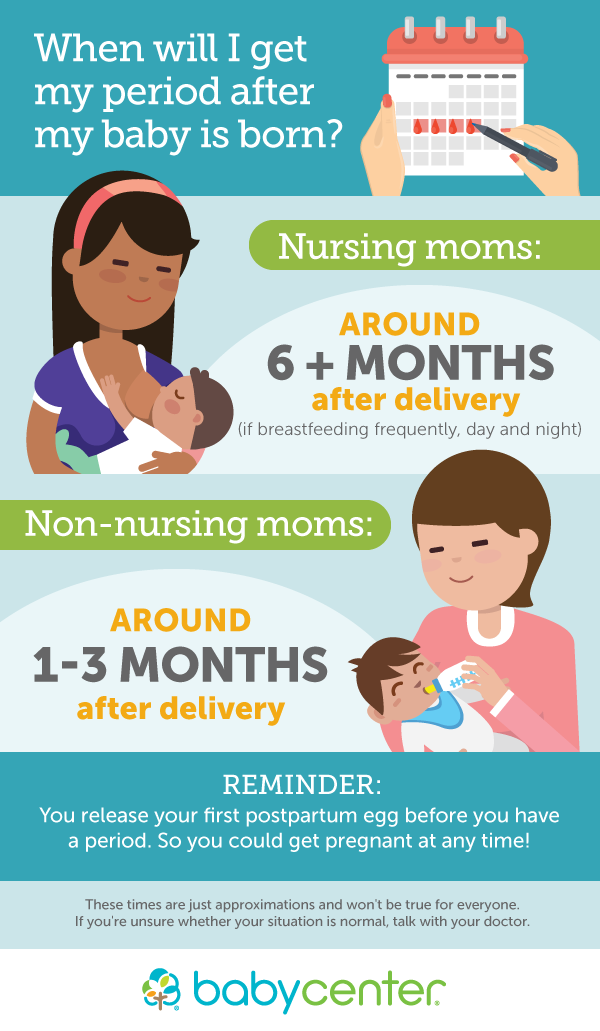
Don’t pressure yourself to exercise before you feel like your body is ready.
Sex
Doctors generally advise to wait about 6 weeks after a vaginal birth, and 8 weeks after a cesarean birth, before having sexual intercourse.
Hormone changes during pregnancy and the act of giving birth itself might make sex uncomfortable at first.
Also be aware that immediately following childbirth and before your menstrual cycle resumes, you’re especially likely to get pregnant again.
Make sure you’ve chosen a method of birth control before having sex with a partner capable of getting you pregnant.
One symptom of postpartum life that you may not anticipate is mood changes.
Hormones from giving birth and breastfeeding can combine with the exhaustion and responsibility of parenting to make for a difficult psychological experience.
While the “baby blues” and clinical postpartum depression share many symptoms, they’re not the same thing.
It’s normal to feel tearful, emotionally fragile, and tired during the first few weeks after baby is born. Eventually, you really will begin to feel like yourself again.
Eventually, you really will begin to feel like yourself again.
If you begin to have suicidal thoughts or thoughts of harming baby, you may have postpartum depression (PPD). Anxiety that keeps you awake or makes your heart race, or overwhelming feelings of guilt or worthlessness, could also indicate that help is needed.
Give yourself permission to reach out to others. Around 1 in 8 people experience symptoms of postpartum depression, according to the CDC. You’re not alone.
Rarely, postpartum depression can accompany a condition called postpartum psychosis. This is an emergency situation and is characterized by delusions and paranoia.
If you feel at any time like you’re experiencing symptoms of postpartum depression or postpartum psychosis, help is available.
If you live in the United States, the National Suicide Prevention Lifeline can be reached at 800-273-8255. They can advise you 24 hours a day, 7 days a week.
By the time you’re ready for your post-birth exam 6 to 8 weeks after delivery, you may start to feel more like yourself physically.
But if at any time after leaving the hospital your bleeding becomes heavier, you experience a fever over 100.4°F (38°C), or you see a pus-like discharge coming from one of your incisions, call your doctor.
It never hurts to get some peace of mind with any questions or concerns you may have.
Recovering From Delivery - Postpartum Recovery
Your body has just done one of the most remarkable things it will ever do: grow another human being. After 9 months of waiting, you are probably excited to finally be home with your new baby. Much of your focus and energy during the coming weeks and months will be on baby, but remember that you also need to take care of yourself, too.
Your delivery may have been complicated or easy. You may have had a cesarean birth (C-section) or vaginal delivery. You may have labored for a few hours or a few days. No matter what your delivery looked like, your body has been through a trauma just the same. It is going to need time to recover.
Your postpartum recovery won’t be just a few days. Fully recovering from pregnancy and childbirth can take months. While many women feel mostly recovered by 6-8 weeks, it may take longer than this to feel like yourself again. During this time, you may feel as though your body has turned against you. Try not to get frustrated. Remember that your body is not aware of your timelines and expectations. The best thing you can do for it is rest, eat well, and give yourself a break.
During this time, your hormones also will be fluctuating. You may not be thinking clearly and will be more emotional. Again, give yourself time for this to pass. However, if at any time you think about hurting yourself or your baby, tell someone.
Path to improved health
It took the better part of a year to grow and have a baby. Take comfort in knowing that, for the most part, you will begin to feel like yourself much sooner than that. In a few months, you should be well on your way to recovery.
That is not to say that postpartum recovery won’t have its challenges. It is very common to feel as though your body is not healing as quickly as you’d like. Remember, the more you can rest your body and let it fully recover, the better you’ll be for it. Even if you can only manage to eat, sleep, and care for your baby, that is enough.
During the first six weeks, pay attention to your body. You’ll be tired and focused on your baby, but try to notice changes with your own body. This is very important as you heal.
As you begin to feel better, resist the temptation to do more. Overdoing things at this point can set you back in your recovery. Concentrate on nourishing your body with good foods, drinking plenty of water (especially if you are breastfeeding), and getting enough rest.
If you’ve had a C-section, you’ll have more restrictions about what you can do in the days and weeks following childbirth. Common don’ts include driving and lifting anything heavier than your baby. Your doctor will let you know when you can resume normal activities.
Your doctor will let you know when you can resume normal activities.
Here is more of what you can expect during your postpartum recovery.
Abdominal pain. As your uterus shrinks back into its normal size and shape, you will feel pain in your abdomen (lower belly). These pains are called “afterpains.” Most of these pains will be dull, but some will be sharp. You may feel more of these pains as you breastfeed your baby. That is because breastfeeding stimulates a chemical in your body that causes the uterus to contract (tighten). For many women, applying heat to the area helps control the pain. Consider using a heating pad or hot water bottle. Your abdominal pain should ease up over time. If these pains get worse or don’t let up, you should call your doctor.
Baby blues. You are so excited and happy to bring baby home. The next minute, though, you are sad. It can be confusing, especially to new moms. Know that many women (70-80%) struggle with feeling sad the first few weeks after having a baby. It is commonly called the “baby blues” and is caused by hormone changes. It is nothing to be ashamed of. In fact, confiding in a friend of family member can often make you feel better. If these feelings last more than a few weeks or you are not able to function because of them, you could have postpartum depression. Postpartum depression is more serious than baby blues. If you have severe feelings of sadness or hopelessness, you should call your doctor.
It is commonly called the “baby blues” and is caused by hormone changes. It is nothing to be ashamed of. In fact, confiding in a friend of family member can often make you feel better. If these feelings last more than a few weeks or you are not able to function because of them, you could have postpartum depression. Postpartum depression is more serious than baby blues. If you have severe feelings of sadness or hopelessness, you should call your doctor.
Constipation. It is very common to be constipated in the days following childbirth. There are several things that could cause this. If you received any pain-relieving drugs in the hospital, they could slow down your bowels. If you had anesthesia (a pain blocker) for any reason, that also can cause it. Sometimes, postpartum constipation is brought on simply by fear. This is true especially if you have stitches because you had an episiotomy (a surgical cut between the vagina and anus to widen the vaginal opening for childbirth) or tore this area during delivery. You may be afraid of damaging the stitches or be afraid that a bowel movement will cause even more pain in that area. To help ease constipation, drink plenty of water and try to eat foods that offer a lot of fiber. In many cases, you may want to talk to your doctor about prescribing a stool softener (such as Colace or Docusoft). If you haven’t had a bowel movement by four days postpartum, call your doctor.
You may be afraid of damaging the stitches or be afraid that a bowel movement will cause even more pain in that area. To help ease constipation, drink plenty of water and try to eat foods that offer a lot of fiber. In many cases, you may want to talk to your doctor about prescribing a stool softener (such as Colace or Docusoft). If you haven’t had a bowel movement by four days postpartum, call your doctor.
Hemorrhoids. You may have developed hemorrhoids (painful swelling of a vein in the rectum) during your pregnancy. If not, you may have gotten them from the strain and pushing during delivery. They can cause pain and bleed after a bowel movement. They also itch. You can get some relief from the pain and itching by applying witch hazel to your hemorrhoids. This is especially effective if you keep the witch hazel in the refrigerator. Your hemorrhoids should shrink over time. If not, contact your doctor.
Hormonal shifts. Besides fueling your mood swings (see “Baby blues,” above), hormones are also responsible for other postpartum symptoms. You may be sweating more, especially at night when you sleep. Just make sure that your sweating is not accompanied by a fever. That could be a sign of infection. Hormonal changes also cause hair loss for many new moms. This is only temporary. When your estrogen levels increase, your hair will return to its normal thickness.
You may be sweating more, especially at night when you sleep. Just make sure that your sweating is not accompanied by a fever. That could be a sign of infection. Hormonal changes also cause hair loss for many new moms. This is only temporary. When your estrogen levels increase, your hair will return to its normal thickness.
Perineum soreness. The perineum is the area between your vagina and anus. Many times, this area will tear during childbirth. Other times, your doctor may have to make a small cut in this area to widen your vagina for childbirth. Even if neither of these things happened during your vaginal birth, your perineum will be sore and possibly swollen postpartum. You may feel discomfort in this area for several weeks. While you recover, sitting on an icepack several times a day for 10 minutes will help relieve the pain. This is especially good to do after going to the bathroom. During the first week postpartum, also use a squirt bottle to rinse the perineum with warm water after using the toilet. Notify your doctor if your perineum area does not get less sore each day or you have any sign of infection.
Notify your doctor if your perineum area does not get less sore each day or you have any sign of infection.
Sore nipples and breasts. The first few days of breastfeeding, it is normal for women to have sore nipples and breasts. If the soreness continues beyond a few days, it could be that the baby isn’t latching correctly. Try changing positions or consult a lactation expert (breastfeeding expert) for help. Do this before your nipples develop painful cracks, which could sideline your breastfeeding. The American Academy of Family Physicians (AAFP) recommends that all babies, with rare exceptions, be breastfed and/or receive expressed human milk exclusively for the first six months of life. Breastfeeding should continue with the addition of complementary foods throughout the second half of the first year.
Stitches. If you have stitches due to a torn or cut perineum (see “Perineum soreness,” above), it will take 7-10 days to heal. The stitches will absorb over time. It is important that you keep the stitches from getting infected by gently cleaning them with warm water after each time you use the toilet. Do this by using a squirt bottle to rinse the area and pat it dry. Do not wipe the area with toilet paper or you could irritate the stitched area. No matter how eager you are to check the healing progress, try to keep you hands off the stitches. If the area begins to hurt worse or the stitches seem weepy, contact your doctor. It could be a sign of infection.
It is important that you keep the stitches from getting infected by gently cleaning them with warm water after each time you use the toilet. Do this by using a squirt bottle to rinse the area and pat it dry. Do not wipe the area with toilet paper or you could irritate the stitched area. No matter how eager you are to check the healing progress, try to keep you hands off the stitches. If the area begins to hurt worse or the stitches seem weepy, contact your doctor. It could be a sign of infection.
If you have stitches from a cesarean birth (C-section), these heal in varying degrees. The stitches in the skin should heal in 5-10 days. The underlying stitches in your muscle layer will take longer to heal. These won’t completely heal for 12 weeks. For the stitches that you can see, make sure to watch for any signs of infection. These signs include if the incision area is red, swollen, or weeping pus; or if you have a fever.
Vaginal bleeding and discharge. After giving birth, it is common that you will have vaginal bleeding and discharge (this is called lochia), even if you had a C-section. This is your body’s way of eliminating the extra blood and tissue that was used to grow and nourish your baby. Expect for this to be heavier at first (up to 10 days), but then taper off. Light bleeding and spotting can last up to six weeks after delivery. It is important that you use only sanitary pads during this time. Using tampons can introduce bacteria and lead to infection. Also expect to pass some clots, especially the first week. If clots are bigger than a quarter, you should contact your doctor.
This is your body’s way of eliminating the extra blood and tissue that was used to grow and nourish your baby. Expect for this to be heavier at first (up to 10 days), but then taper off. Light bleeding and spotting can last up to six weeks after delivery. It is important that you use only sanitary pads during this time. Using tampons can introduce bacteria and lead to infection. Also expect to pass some clots, especially the first week. If clots are bigger than a quarter, you should contact your doctor.
Water retention. You may be eager for that swelling you noticed during your pregnancy to go away. It won’t, though, for a while longer. Also known as postpartum edema (swelling), your body will continue to hold on to water because of an increase in a hormone called progesterone. You may notice the swelling in your hands, legs, and feet. It shouldn’t last much longer than a week after delivery. If it does or if it seems to get worse over time, be sure to tell your doctor.
Weight loss. If you were hoping for immediate weight loss after your baby was born, you were probably very disappointed. No mother is that lucky, no matter what you read in the tabloids. You can expect to lose about 6-12 pounds (depending on the size of your baby) during the birth. After that, your weight loss will slow considerably. Depending on how much weight you gained during pregnancy (the average is 25-35 pounds), it may take several months to lose the baby weight. For many women, breastfeeding seems to help promote weight loss. Other moms don’t see weight loss associated with breastfeeding. Try to keep your nutrition consistent while you are breastfeeding and do not get frustrated if it takes longer than you’d hoped to lose the weight.
Things to consider
Pay attention to your body after giving birth. If something doesn’t seem right, it probably isn’t. Soreness is to be expected, but too much pain could mean something is seriously wrong. Don’t be so wrapped up in caring for your baby that you ignore your own health.
Just because you’ve made it through delivery, you are not necessarily out of danger for health complications. There are life-threatening problems related to childbirth that can happen days or weeks after delivery.
- Postpartum hemorrhage is rare but can happen. If your postpartum bleeding is filling more than a pad every hour, you should contact your doctor immediately. Without treatment, postpartum hemorrhage can be fatal.
- Headaches that are severe and don’t go away can also signal an underlying problem, especially coupled with high blood pressure. You could be in danger of having a stroke.
- Deep vein thrombosis (a blood clot in a deep vein) is a somewhat uncommon problem (1 in every 1,000 pregnancies) that can occur during or after pregnancy. Symptoms include leg pain or feeling like you have a pulled muscle. Your leg may also be red and hot to the touch. Left untreated, these clots can break away and travel to your lungs.
 When this happens, it can be life-threatening.
When this happens, it can be life-threatening. - Postpartum preeclampsia is rare and can develop within 48 hours after childbirth or as late as six weeks after childbirth. It is similar to preeclampsia (also called toxemia), which can occur while you’re pregnant. Both preeclampsia and postpartum preeclampsia cause your blood vessels to constrict (get smaller). This results in high blood pressure and also distresses your internal organs. Sometimes there are no obvious symptoms, unless you are monitoring your blood pressure. When you do have symptoms, they may include severe headache, swelling of your hands and feet, blurred vision, pain in the upper right portion of your body, and sudden weight gain. If you suspect you may have postpartum preeclampsia, call your doctor immediately.
When to see a doctor
When you are recovering from delivery, it is best to err on the side of caution if you feel that something is not right with you or with the baby. You should expect to have some discomfort as you heal. You should not begin to feel worse.
You should expect to have some discomfort as you heal. You should not begin to feel worse.
In general, if you have any of these postpartum symptoms, call your doctor.
- Heavy vaginal bleeding that soaks more than one pad per hour or vaginal bleeding that increases each day instead of decreasing.
- Passing large clots (bigger than a quarter).
- Chills and/or a fever of more than 100.4°F.
- Fainting or dizziness.
- Changes to your vision or a severe headache (persistent).
- Painful urination or difficulty urinating.
- Vaginal discharge with a strong odor.
- Heart palpitations, chest pain or difficulty breathing.
- Vomiting.
- Incision from C-section or episiotomy is red, weepy (with pus), or swollen.
- Abdominal (lower belly) pain that is getting worse or new abdominal pain.
- Sore breasts that are red or feel hot to the touch.
- Pain in your legs with redness or swelling.
- Increase in swelling.

Questions to ask your doctor
- How long until I will feel like myself again?
- Why am I still retaining water?
- How many calories should I eat while I’m breastfeeding?
- When can I begin exercising?
- How long should I wait before having sex again?
- Can I get pregnant while I’m breastfeeding?
- Why is my hair falling out?
- Are there foods I shouldn’t eat while breastfeeding?
- Why aren’t I losing weight?
- What are my options for birth control?
- Will my breasts go back to normal?
- Why do I have no interest in sex?
Resources
Centers for Disease Control and Prevention (CDC): Depression Among Women
National Institutes of Health, MedlinePlus: Postpartum Care
Postpartum Support International
U.S. Department of Health and Human Services, Womenshealth.gov: Pregnancy: Recovering from Birth
How will life change after the birth of a child?
Shatalova Maria Alexandrovna, child and family psychologist
Often this question is asked by future parents even before the baby is born. Of course, life after childbirth will be very different, and women may have different fears and expectations. The best way to protect yourself from stress and unnecessary worries is to arm yourself with information and study the subject.
In this article, you will learn what changes in different areas of life after the birth of a child and how to prepare for these changes.
Relationship with husband after childbirth
The birth of a child is a happy event for the family, at least it is considered so. Much less often, future parents hear about the difficulties that can be encountered after the baby is born. For example, that now it is necessary to simultaneously support the roles of spouses and master new ones - the roles of parents. The lifestyle and workload are changing, and the usual social connections and activities go by the wayside. All this increases the tension in the couple and can lead to conflicts.
If this period is not easy for you, do not panic - this is normal. And having overcome the crisis, you will only strengthen your relationship.
And having overcome the crisis, you will only strengthen your relationship.
What to do?
Do not forget that you are not only the child's parents, but also spouses. This means that attention and care should be directed not only to the baby, but also to each other. It's not about the amount of time you can spend with your spouse, but about maintaining confidence that you are still important to each other. How might this manifest itself in practice? Of course, the husband takes care of the child together with his wife, but also takes care of her herself: he makes tea for her or cooks food. The wife, in turn, will not only hand over the child to her husband when he returns from work, but also ask how his day went, what his thoughts are busy with. If there is strength, spend time nearby.
Sometimes misunderstandings and difficulties can arise in communication with a partner. In such situations, it is important not to forget about direct communication - the ability to speak openly about your emotions and needs. The first weeks, and even months after the birth of a child, a young mother is especially vulnerable physically and psychologically. The need for support is increasing, especially from the husband. However, do not expect your spouse to always understand exactly what kind of help you need right now. Don't be afraid to ask for help and openly share your feelings and concerns.
The first weeks, and even months after the birth of a child, a young mother is especially vulnerable physically and psychologically. The need for support is increasing, especially from the husband. However, do not expect your spouse to always understand exactly what kind of help you need right now. Don't be afraid to ask for help and openly share your feelings and concerns.
It is important that both parents understand that the first months after the birth of a child is a transitional and stressful period for everyone. For example, if you don’t have the strength after a sleepless night with a baby, don’t wait until your husband guesses and picks up the child. Just tell him about it when necessary. Only in this way, over time, a comfortable way of life for all will be developed.
The dream of young parents
Sleep is a basic human need. And for a young mother, who most often bears the greatest burden of caring for a newborn, this need is especially important. In the first months after childbirth, it can be difficult to adjust your sleep patterns and get used to new realities.
In the first months after childbirth, it can be difficult to adjust your sleep patterns and get used to new realities.
What to do?
One of the common tips - sleep when the baby sleeps - can work for you too. Especially if the child does not yet have a regimen and he can sleep for 5 hours in a row during the day and hardly sleep at night. Therefore, sometimes it is better to prepare for sleepless nights and sleep during the day.
However, not all mothers can sleep with their baby. Someone's instincts become so aggravated that every rustle and sigh of a baby wakes up a woman - this is how nature works, and this is normal. In this case, it is necessary that someone take the child to another room / for a walk, giving the mother the opportunity to fully relax and unwind.
Sex after childbirth
In the first months after childbirth, a woman's desire decreases or may be completely absent. This is completely normal - the body needs time to recover from pregnancy and childbirth.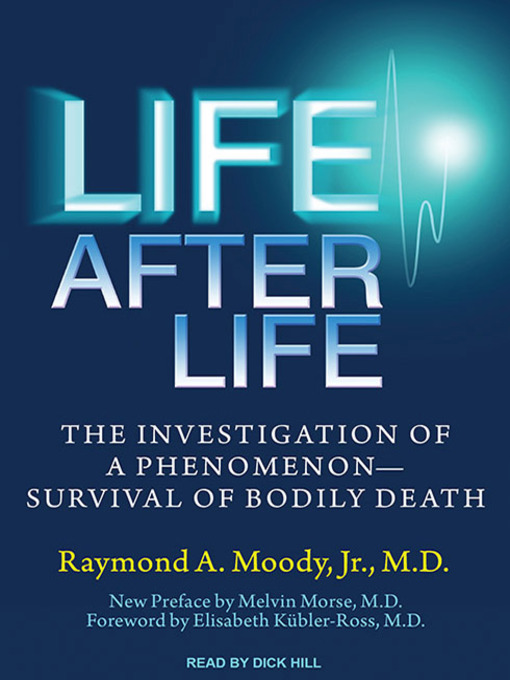 Lack of sleep and anxiety associated with taking care of the baby also affect libido.
Lack of sleep and anxiety associated with taking care of the baby also affect libido.
What to do?
How long does it take to return to sex after giving birth? It is important to understand that there is no time frame for when a couple "should" return to sexual activity after giving birth. This is an individual process, but one of the main conditions for the restoration of sexual life after the birth of a child is the absence of pressure and the delicacy of the partner. Often, men experience anxiety due to a long absence of intimacy and take it personally. In such cases, the best solution is to explain to your spouse that you need time to recover. And if you experience too much stress from household chores and sleep little, then you should ask your husband for help and devote more time to rest.
Free time for parents
If a couple led an active lifestyle before the birth of a child, then the arrival of a new family member certainly imposes some restrictions. Time becomes much less, and responsibility - more.
What to do?
The main rule of a healthy hierarchy in the family is: children follow their parents, and not vice versa. Of course, this does not mean that you should go on your favorite mountain river rafting with a one-month-old baby. However, you can gradually introduce the child to your lifestyle, taking into account his age-related needs.
To maintain close relationships, it is important for parents not to forget that they are not only mom and dad, but also a couple who sometimes need to be alone. While the child is very young, it can be watching a movie in an embrace at home, later - going out while the grandmother, nanny or other reliable adult looks after the baby.
Nutrition after childbirth
From the beginning of pregnancy, a woman's diet changes greatly, and after childbirth requires some adjustment. Gaining weight or feeling unwell can unsettle some women and make them want to go on a diet or, conversely, stop paying attention to the usefulness of food.
What to do?
Regardless of the chosen concept of nutrition after childbirth, it is important to ensure that the diet remains complete. Do not rush to go on a diet to return to the "pre-pregnancy" weight - first, the body needs to recover. For a mom who breastfeeds around the clock, it will be perfectly fine to have a warm drink and a snack even at night. Sometimes a mother can completely focus on caring for a baby and his nutrition, forgetting about herself and eating inadequately. It will be great if someone close can provide support and cook tasty and healthy food for mom - at least during the first month or two, while the woman is recovering from childbirth and adapting to a new role and tasks.
Relationships with relatives and friends
Having a baby can be a turning point in your relationships with some people. A flurry of unsolicited advice, excessive attention or misunderstanding can fall on a young mother even during pregnancy. And with the advent of a child, a distance may arise with some friends, including childless ones.
And with the advent of a child, a distance may arise with some friends, including childless ones.
What to do?
It is important to learn to build boundaries, to accept the useful with gratitude and to weed out the unnecessary without hesitation. Many tips will turn out to be nothing more than personal experience - learn to pass any recommendation through the prism of your own critical thinking. Of course, the presence or absence of children is not a key factor in the friendship of adults. However, friendship is tested precisely in situations where someone needs help.
Feel free to ask for help! This does not mean that you are weak or incompetent as a mother. Leave comments that “we used to manage without diapers and washing machines” and everyone had time, shamelessly ignore, because your goal is not to survive, but to live a happy life, maintaining health, relationships and a good atmosphere in the family!
- Nutriclub - healthy nutrition and child development
- 0-12 months
- About mom
- How will life change after the birth of a child?
Read online “Life after childbirth. A Handbook for a Young Mother, Wendy Bloomfield - LitRes
Foreword
During pregnancy, a woman bathes in the increased attention that others pay to her physical and emotional needs. But all this attention and all the thoughts of the woman herself are directed exclusively to the upcoming birth and the well-being of the child.
After childbirth, when the euphoria of the first days and the relief from the fact that everything went well is over, there is a feeling of exhaustion. All attention is now on the child: the medical staff, caring relatives and friends all give advice on what the child should eat, what to wear, where he should sleep and what to play with. There are many books available in stores about pregnancy, childbirth, breastfeeding, and parenting, and most parents have a solid library on these topics even before their first child is born.
In the meantime, the mother is emaciated and may be in pain from an episiotomy or because of a full breast. The euphoria of the first hours after childbirth is replaced by a desperate need to sleep and recover.
This book is addressed to those who are concerned about the physical and emotional health of a woman after childbirth. This is not a guide to breastfeeding or child development, although any postpartum book would be incomplete without information on these topics.
I just want to talk to you - to a young mother and father, to your parents, relatives, health workers.
I hope that by reading about the experiences of other parents, you will realize that you are not alone.
The analysis of information from books and newspapers will help to rethink and logically explain the changes and emotional outbursts that you are facing now. You will also learn to distinguish the normal process of adjusting to difficulties from the manifestations of postpartum depression.
I hope that my personal experience and the review of research presented here will be useful to professionals whose work is related to maternal health. After all, it is so hard to watch how a completely healthy young mother finds herself in a dead end, alone, face to face with difficulties that she is not able to cope with on her own, and to understand what a negative impact this can have on relationships in her family.
This book discusses the main risk factors for postpartum abnormalities. Without a doubt, a woman whose family life is overshadowed by the loss of a loved one, divorce, job loss, or is complicated by constant traveling, it is much more difficult to take root and form her own protective system. Single mothers and abandoned wives, immigrants torn from the environment of a large family - all these women have an order of magnitude heavier burden, and the more society is aware of this, the more effective the assistance and psychological support provided to such women.
Perhaps the most terrible ordeal that can befall a woman is life after childbirth, when the child who gives all this meaning is no more. I hope that the chapter on coping with grief after the death of a child in the womb or in infancy, and how to deal with the situation when a child ends up in the intensive care unit immediately after birth, will help to ease the situation of parents a little and will be useful both for themselves and and their loved ones.
But no matter how successful the pregnancy and childbirth may be, no matter how stable and constant family relationships may be, this time period does not stand alone in the personal history of a woman. Each woman comes to her birth with a wealth of experience and a formed attitude towards parenthood, bringing with her a whole layer of beliefs and impressions from her own childhood, skills and talents accumulated during her studies and work. All of these values also influence her decisions after the baby is born: to breastfeed or not to breastfeed, when to return to work, when to plan her next pregnancy.
If mothers sometimes feel that all attention is transferred to the child after childbirth, then fathers may even feel excluded from life. The young dad section of this book was originally conceived as one chapter. I thank Martin Richards of the Early Childhood Education Group, Department of Sociology and Political Science, University of Cambridge, who sent me his comments and suggestions on this topic. There is much more material, and I decided to share psychological recommendations for young fathers and practical parenting tips that I shared with mothers.
Since a new mother is also a daughter and possibly a granddaughter, sister and niece, it is important to pay attention to the dynamics of the whole family. For example, the ability of grandparents to adapt, their emotional well-being will inevitably affect how much support and help they can give to the younger generation.
Many of the adjustment difficulties of life after childbirth take new mothers by surprise. And if a woman already has children, with the advent of a new child, new problems arise: you have to constantly regulate the relationship between children as they grow up.
And if a woman already has children, with the advent of a new child, new problems arise: you have to constantly regulate the relationship between children as they grow up.
So, together we will look at the various aspects of what is sometimes called the "fourth trimester" or the fourth phase of the year of pregnancy.
Books, like children, are not born at once, and the gestational period of this book lasted much longer than a normal pregnancy. Having worked with couples for many years during the pregnancy of expectant mothers, I realized how little they are prepared for what happens after childbirth, and how useful a book on this topic would be.
Therefore, I am grateful to everyone who helped me and inspired me to this work. From the moment I submitted the book to the publisher Element Books , I have been in constant contact by mail and phone with Senior Editor Julia McCutcheon, and I am very grateful to her for the professionalism and productivity with which she and the rest of the staff at Element worked on this book.
I also thank the National Childbirth Trust, where I started my career as a birth educator, and all my clients and colleagues who shared their joys and concerns with me.
It's not always easy to meet deadlines with a family and a job, but each of my family members has made their own special efforts to help me move forward.
Given the theme of the book, it is obvious that I could not have written it without being the mother of four very energetic and inspiring children.
Indeed, now that they have grown up, I am touched by the thought of what a great influence they have had on this book.
Special thanks go to my two "IT managers" - husband David and son Anthony - who introduced me to the mysterious world of text editors and gave me advice over the phone when I had problems working with them. And my daughter Sarah, who helped me get books from libraries across the country. And Jonathan and Daniel, who gave me a lot of great ideas for rebalancing.
With the arrival of my sisters-in-law Einat, Lilah and Galit, and son-in-law Eran, our family has expanded, and being involved in their lives has strengthened my belief that motherhood is a lifelong, active job that is never retired.
I received my copy of the first English edition of this book on the very day our first grandchild, Amit, was born. We are eleven! And this event opened a new chapter in my life.
David is of course not only my IT manager, his support and enthusiasm for my work over the years has helped me to develop and continue to learn. I never heard a single complaint from him, despite the fact that in our house there were constantly training sessions and meetings, and the dinner table before each meal had to be cleared of piles of books and papers.
If I hadn't been distracted by family and work, this book would most likely have been written many years ago, but I hope readers will agree that the practical experience presented in these pages greatly enriches it.
Therefore, I am grateful to everyone who helped me and inspired me to this work. Since I submitted the book to Element Books , I have been in constant contact by mail and phone with Senior Editor Julia McCutcheon, and I am very grateful to her for the professionalism and productivity with which she and the rest of the staff Element worked on this book.
I also thank the National Childbirth Trust, where I started my career as a birth educator, and all my clients and colleagues who shared their joys and concerns with me.
Finally, I would like to thank the Resurs publishing house for publishing this book in Russian.
It's not always easy to meet deadlines with a family and a work schedule, but each member of my family has made an effort to help me move forward.
Chapter 1
Fantasy and reality
A woman expecting the birth of her first child is on the verge of a transition the likes of which have never been and never will be in her life. This transition will be the starting point of a new life for her entire family.
During pregnancy - from the moment of conception to the end of the postpartum period, the duration of which may vary - global hormonal and physiological changes occur in a woman's body. As a result of such a restructuring, as a rule, the main features of its character change. A confident, calm woman can become lethargic and depressed; an energetic creative person may suffer from his own manic irritability and excitability.
A confident, calm woman can become lethargic and depressed; an energetic creative person may suffer from his own manic irritability and excitability.
The existence of postpartum depression (PPD) has been documented and its symptoms have been extensively researched. But few women, and even healthcare workers, realize that these same physiological and psychological changes are what cause pregnancy mood swings, irrational fears and depressions, tantrums, and confrontation with the world.
When this happens for the first time, the woman may feel guilty: “What happened to me? I wanted this child so much, my husband supports me so much, I have a good job, a cozy home. Why don't I feel happy all the time?"
Of course, if the pregnancy is not wanted, if the woman has neither a caring husband, nor a good job, nor a comfortable home, mood swings may be more reasonable, but no less annoying.
Often women do not perceive their own pregnancy as a kind of transitional state and try to find a rational explanation for their bad forebodings and ambivalent feelings, calling it fear of labor pain or concern for the health of the child. Then these fears manifest themselves in extreme sensitivity and in bizarre dreams. Thoughts about the possible outcomes of childbirth, attempts to accept the changes taking place in the body, loss of control over oneself - very often a collision with all this frightens a woman, and as a result, unrealistic, fantastic pictures fill the subconscious world of dreams. “I dreamed that I gave birth to kittens,” or: “We all sat on the bed and ate the placenta,” such stories are heard quite often.
Then these fears manifest themselves in extreme sensitivity and in bizarre dreams. Thoughts about the possible outcomes of childbirth, attempts to accept the changes taking place in the body, loss of control over oneself - very often a collision with all this frightens a woman, and as a result, unrealistic, fantastic pictures fill the subconscious world of dreams. “I dreamed that I gave birth to kittens,” or: “We all sat on the bed and ate the placenta,” such stories are heard quite often.
Before childbirth courses became fashionable, most women had little opportunity to express their fears; and twenty-five years ago, in such courses, as a rule, only physical exercises were taught. Now I can’t even believe that, going through a course of preparation for childbirth before the birth of my first child, I did not hear a single word about emotional and physiological changes. All course material began and ended in the delivery room, and we were not given any information about breastfeeding or what generally happens after childbirth.
Over the past thirty years, various childbirth courses have repeatedly tried to introduce programs designed not only for expectant mothers, but also for fathers. In such courses, both spouses get the opportunity to learn more about the process of childbirth and share their feelings with a group of like-minded people. The expectations of spouses in relation to childbirth and the postpartum period can be completely different. Mood swings, decreased sex drive, rejection of bodily changes - all these topics are discussed and worked out in role-playing games. Of course, in every group there is always at least one beaming future mom who says: “What is all this fuss about? I feel just great - this is the best time of my life.
It is interesting and, apparently, natural that the focus of all couples is only the birth itself. When I start working with a new group, usually after thirty weeks of pregnancy, I ask for their expectations and wishes for the course. It is extremely rare for group members to think about what will happen after the baby is born. Throughout the third trimester, they are focused only on the process of childbirth - everything else is somewhere beyond the horizon.
Throughout the third trimester, they are focused only on the process of childbirth - everything else is somewhere beyond the horizon.
Toward the end of the course, after we have devoted a lot of time to this topic, they almost forget about these problems. They do not even expect anything from childbirth, except for a feeling of physical and moral relief.
Sometimes I offer couples role-plays in which they try on certain situations. One of my favorite tricks is to suggest that the husband and wife switch roles and play out a scenario in which a devoted husband, realizing that his wife will be forced to spend all the time at home with a newborn in the next two months, asks a friend to babysit and presents his wife with tickets to theatre. But he forgot that on this day the child had the first vaccination, the baby is crying, he has a fever; besides, the washing machine broke down, and it has been raining non-stop for three days now. His wife meets the surprise with bewilderment and a tone that brooks no objection, declares that the only thing she wants now is to take a hot bubble bath and go to bed, which, of course, offends him very much!
All members of the group usually find this situation amusing, they do not believe that this can happen in their family.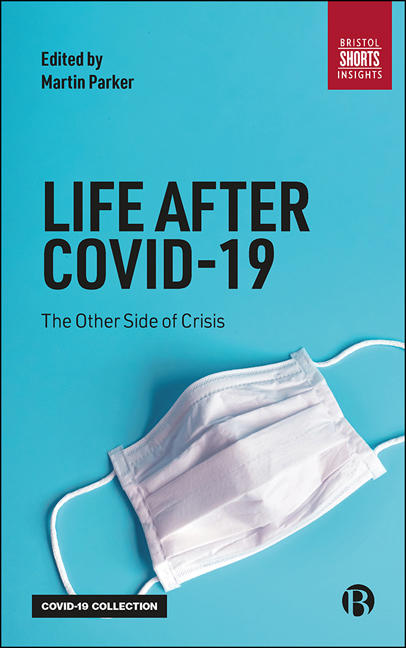 But already after the birth, at a general meeting of the course participants, almost all of them admit that there was not much to laugh at.
But already after the birth, at a general meeting of the course participants, almost all of them admit that there was not much to laugh at.
And yet, many women at least sometimes think about their future role as a mother. Some women see themselves in the image of the "universal mother", for them motherhood is the ultimate dream; others are convinced that they will be super-moms, and the child will not change their usual rhythm of life too much. And this is also a reason for the emergence of an internal conflict that causes feelings of guilt and irritation during pregnancy.
Patricia enjoyed her pregnancy. She was very happy and calm, because the thirty-first week had already begun and everything was going well. Before that, she had several miscarriages, and she was very afraid that this would happen again. Naturally, she rejoiced at every movement of the fetus and looked forward to every ultrasound to admire her energetic healthy baby.
Patricia had a very satisfying job at the university, and her husband George worked in the university library. They enjoyed spending time together, went hiking and climbing.
They enjoyed spending time together, went hiking and climbing.
Closer to the birth, Patricia began to realize that all these activities would have to be abandoned for a while, which upset her and even resented her. She was ashamed to admit it. “How can I think about such things, if before that I only dreamed of a healthy, full-term baby?” Patricia rethought the situation, and this allowed her to cope with herself. Now she has three wonderful children, she still enjoys work and goes hiking with her family - George carries the youngest child on her back in a carrier.
Women who, like Patricia, have experienced miscarriages, premature births, miscarriages, or infertility are often hypersensitive and irritable during pregnancy, even when everything goes well. This irritation may persist after childbirth, weakening the attachment to the child and the mother's desire to care for her newborn.
Such women often focus too much on the symptoms and constantly seek medical help.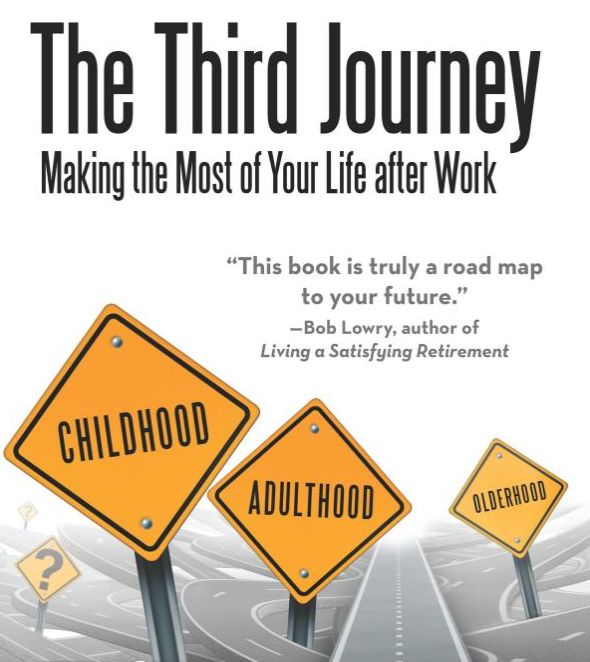 Carol had a presentiment of this when she came to her senses after a sudden termination of pregnancy: "I will never again be able to be as calm as I was during this pregnancy." At thirty-seven weeks, Carol felt that the fetus began to move less, and by the time she went to the hospital, the fetus's heartbeat was already absent. “The next time I get pregnant, I will count my baby’s movements every hour,” she said.
Carol had a presentiment of this when she came to her senses after a sudden termination of pregnancy: "I will never again be able to be as calm as I was during this pregnancy." At thirty-seven weeks, Carol felt that the fetus began to move less, and by the time she went to the hospital, the fetus's heartbeat was already absent. “The next time I get pregnant, I will count my baby’s movements every hour,” she said.
Prenatal education
Prenatal courses prepare expectant parents, among other things, for the changes that will take place in their lives with the birth of a baby, but they themselves come to the courses only to prepare for childbirth. “We want to learn how to breathe properly” is one of the most common wishes in such courses.
And here a Pandora's box opens, because there is a direct relationship between the preparation and expectations of a pregnant woman and how the experience gained in childbirth will be reflected in her motherhood and later life. I will discuss the impact of birth experiences in more detail in Chapter 2, but now let's take a closer look at methods of preparing for childbirth and how they can reduce or increase our fears and fantasies.
There are a huge number of birth preparation methods developed in different countries. All of these methods are aimed at acquainting future parents with the most relevant information and teaching them the skills to deal with birth difficulties without losing control of the situation.
One of the founders of the system of prenatal education, as we know today, was Dr. Fernand Lamaze 1 , his method of teaching breathing during childbirth was based on the method of developing a conditioned reflex of Academician Pavlov. He wrote the revolutionary book Painless Childbirth, where he introduced the concept of childbirth as a natural process that is painless if the woman behaves correctly.
Until that time, pain relief was often used during childbirth, which was physically unsafe and deprived women of psychological satisfaction. But the application of the Lamaze method could also create feelings of guilt and depression in a woman. “I was in pain because I didn’t do the exercises correctly,” such a statement is not only wrong, but also harmful to the psyche.
There are many reasons why there may be pain during childbirth. Among them are the position of the child, the hormonal background of the mother, and other factors. It is true that the pain threshold can be raised through mindfulness, relaxation, and proper breathing techniques, but it is impossible to say with certainty that pain is only a figment of our imagination, and that asking for pain relief is an admission of defeat.
Dr. Grantley Dick-Read 2 , a British OB/GYN, had a much more flexible philosophy. The book "Childbirth without fear" (pay attention to the difference in accents in the titles of books) he wrote in the 40s of the XX century. According to his theory, pain is reduced when there is no fear and tension.
According to the concept of Dick-Read and his followers, no woman should feel guilty if she used drugs during childbirth. Childbirth is a very individual experience: for some women it is joy and ecstasy, while for others it is a nightmare. The feelings experienced in childbirth subsequently have a huge impact on the woman's attitude to the child and, of course, to her husband too. And it is this experience that influences her adaptation to life after the birth of a child.
The feelings experienced in childbirth subsequently have a huge impact on the woman's attitude to the child and, of course, to her husband too. And it is this experience that influences her adaptation to life after the birth of a child.
Dr. Frédéric Leboyer 3 , French gynaecologist, author of Birth Without Violence (1976), pays much attention to how a child perceives birth trauma. The remedies he recommends for easing trauma, such as calmness, darkness, laying the baby on the mother's stomach immediately after delivery, and minimizing separation, make childbirth more enjoyable for the mother as well.
Another French gynecologist, Dr. Michel Auden 4 , has suggested some more innovative birthing techniques: bathtub birth, all fours birth and vertical birth. His hospital does not use any methods of medical pain relief, even if a woman asks for it. On the one hand, when a woman gives birth in a natural position, this facilitates childbirth, but on the other hand, in this case, she has no choice if the pain becomes unbearable during childbirth. However, women who give birth with Dr. Auden (now based in London) claim that his charisma and soothing voice are much more relaxing than a few doses of pethidine!
However, women who give birth with Dr. Auden (now based in London) claim that his charisma and soothing voice are much more relaxing than a few doses of pethidine!
Some methods of preparing for childbirth and books are dangerous because they form a woman's views and expectations that do not correspond to reality. Instead of instilling confidence in the expectant mother and getting her to actively participate in the process, they lower her self-esteem. If a woman feels that she has failed in such an important life event as childbirth, she begins to doubt her ability to be a good mother. A study at a Toronto maternity hospital 5 found an increase in postpartum neurosis and even psychosis in women who attended overly intensive, consumer-oriented prenatal courses that pitted them against hospital procedures, undermining the credibility of medical staff. As you can see from the birth stories in Chapter 2, this attitude can lead to anger and frustration because the woman doubts the qualifications of her midwives and doctors.

